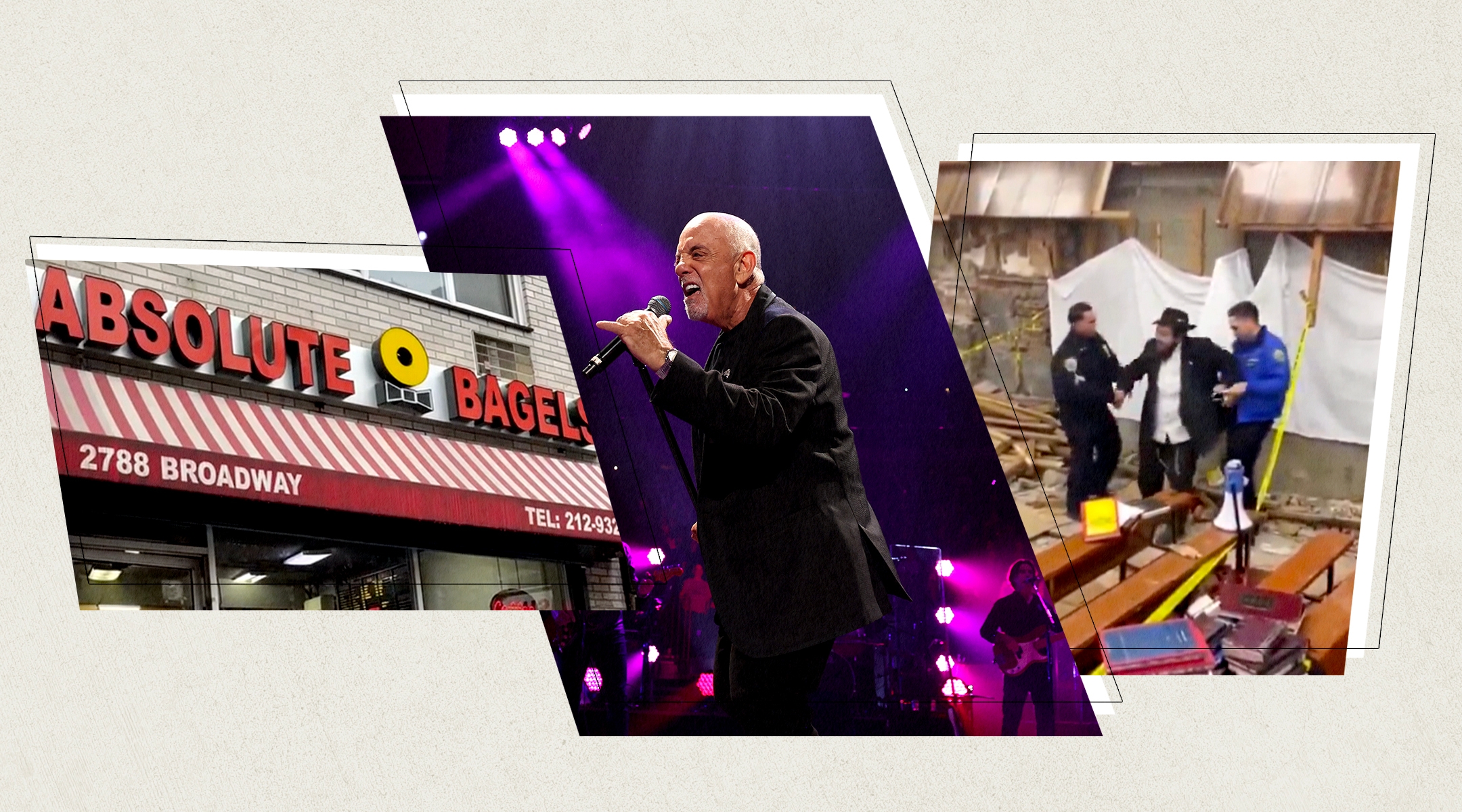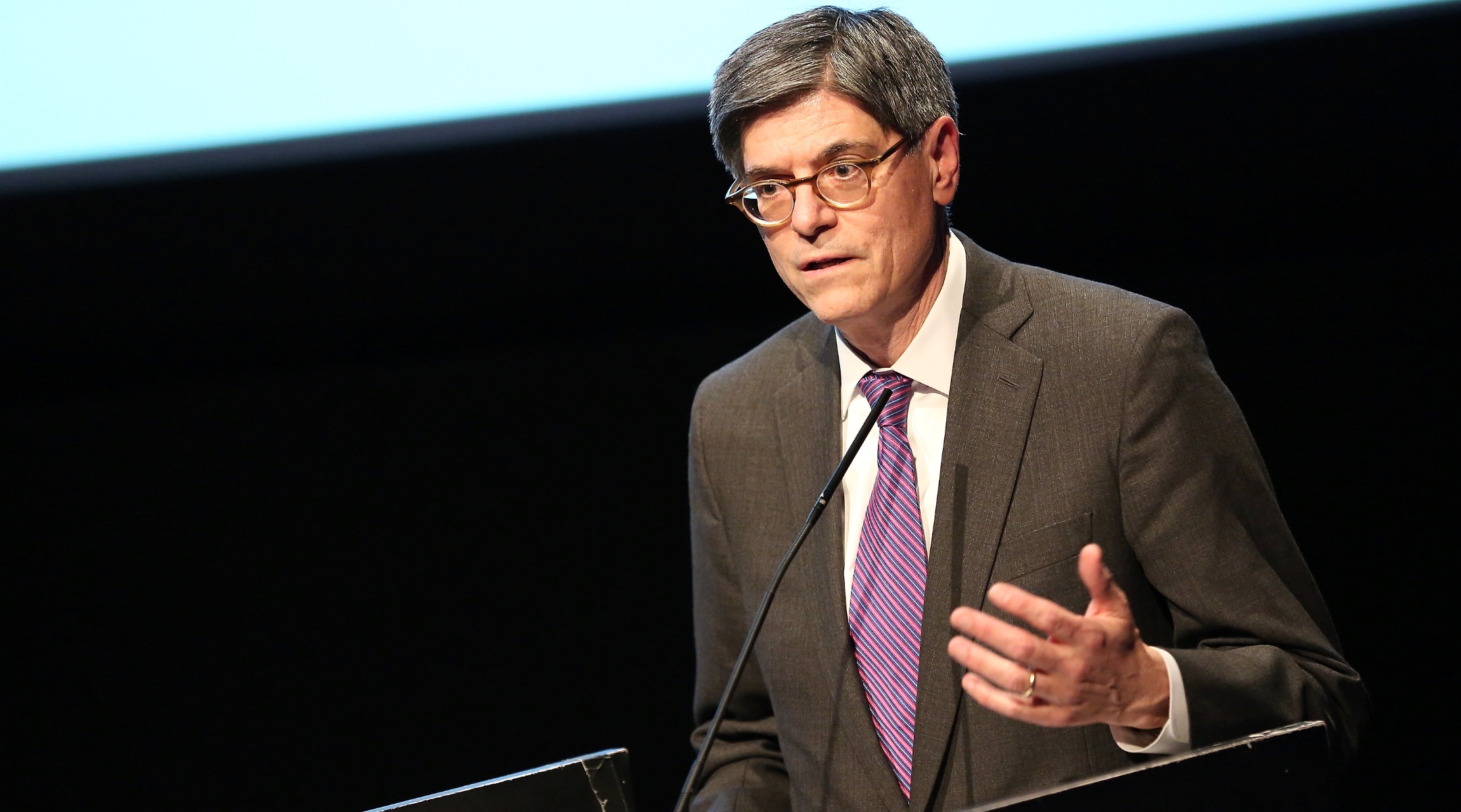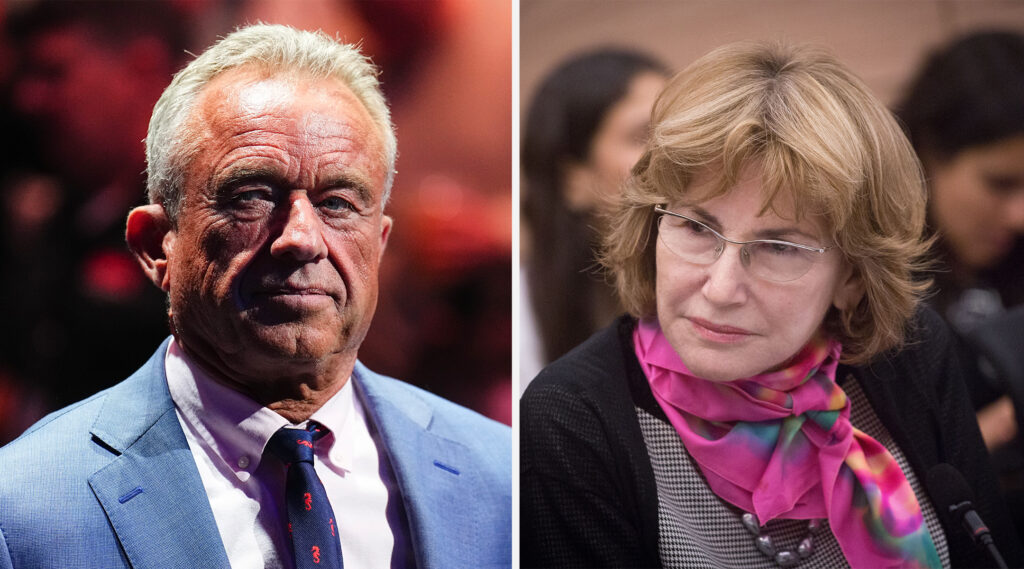New York City’s Other Israel Film Festival, which spotlights marginalized voices in Israel, opens this week with a slate of movies by Israeli and Palestinian filmmakers.
It’s a notable return for the festival, which was indefinitely postponed in 2023 in the wake of Hamas’ Oct. 7 attack on Israel. This year, it aims to “highlight the stories of those who stand together for coexistence and an end to violence,” according to its website.
The festival, which runs at the Marlene Meyerson JCC Manhattan and is now in its 18th installment, opens Thursday night with “The Other,” a documentary about Israelis and Palestinians, and what happens when they meet “the other.” The festival will close the evening of Tuesday, Dec. 10 with a screening of “Shoshana,” a thriller about a British police officer in 1938 Mandatory Palestine who falls in love with the daughter of Dov Ber Borochov, a Labor Zionist leader.
Following a year-plus of war between Israel and Hamas, and with more than 100 hostages still held in captivity in Gaza, the festival aims to tread a fine line: telling complicated, multi-ethnic stories — mainly for a Jewish audience — without being insensitive.
“In many ways, we had to really think hard about how to approach doing ‘Other Israel’ this year, since the new reality of Oct. 7, in how to be both sensitive and what points we want to make with this festival,” said Isaac Zablocki, the executive director of the festival and the JCC’s senior director of film programs. “We really landed on, for the most part, having a theme of the shared stories, and looking for these positive examples of working together and finding stories that can bring the community together rather than tear it apart.”
Thursday night’s film, “The Other,” was set to premiere at last year’s festival, which was never mounted. After the Oct. 7 attack, Israeli-American Jewish director Joy Sela revisited the subjects of her film (which was originally shot between 2017 and 2023) and included new elements in the documentary, including updated interviews and footage from the war.
“It needed a kind of an epilogue that tells where these relationships have been impacted and where they have changed since Oct. 7,” Zablocki said. “And we’re really happy that the film actually has that and has become even more relevant in some ways.”
One screening that has already sold out is Sunday night’s “The Bibi Files,” a documentary that makes use of a trove of leaked police interrogation footage from Israeli Prime Minister Benjamin Netanyahu’s years-long corruption scandals, featuring footage that’s illegal to screen in Israel. There will also be a Q&A with the film’s director, Alexis Bloom, and producer Alex Gibney.
Other films that will screen include “Savoy,” a docudrama about the 1975 terror attack on the Savoy Hotel in Tel Aviv that centers on Kochava Levy, the Yemeni Jewish woman who acted as an Arabic-speaking mediator between the Palestine Liberation Organization and the Israeli military while she was held hostage in the hotel; and “The Checkpoint Women: Memories,” a documentary about a group of Israeli women who safeguard the rights of Palestinians who cross the border between Israel and the West Bank.
Notably absent from the festival lineup: Oscar hopeful “No Other Land,” which won two awards in New York City this week: best documentary at The Gothams and best non-fiction film at the New York Film Critics Circle. The film, created by a Palestinian-Israeli collective, chronicles how the residents of Masafer Yatta, a group of Palestinian villages in the West Bank, have dealt with the more than 20-year threat of displacement as the Israeli military seeks to create a closed military zone. (In 2022, the Israeli Supreme Court ruled that Israel had jurisdiction over the land and that the Palestinian residents living there could be forced to leave.) The film was “too hard for this moment,” Zablocki said.
He added, “We were looking this year for those shared stories, and working together stories, and stories that can give us hope and not discouragement.”
Support the Jewish Telegraphic Agency

Help ensure Jewish news remains accessible to all. Your donation to the Jewish Telegraphic Agency powers the trusted journalism that has connected Jewish communities worldwide for more than 100 years. With your help, JTA can continue to deliver vital news and insights. Donate today.









 English (US) ·
English (US) ·